Uncategorized
-
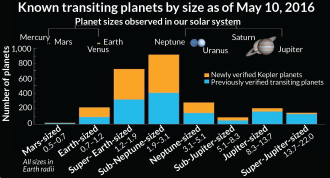 Astronomy
AstronomyKepler telescope doubles its count of known exoplanets
NASA’s Kepler space telescope adds 1,284 planets to the roster of worlds known to orbit other stars in our galaxy.
-
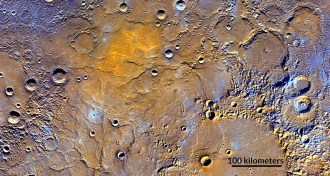 Planetary Science
Planetary ScienceMercury’s stunning landscape mapped
First complete topographic map of Mercury reveals plains, craters and both the highest and lowest points on the planet.
-
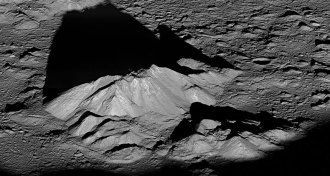 Planetary Science
Planetary ScienceLong-running lunar mission reveals moon’s surprises
Seven years into its mission, the Lunar Reconnaissance Orbiter is still going strong and finding surprises on the moon.
-
 Quantum Physics
Quantum PhysicsCommunicating covertly goes quantum
Researchers are working to make quantum messages that are undetectable.
-
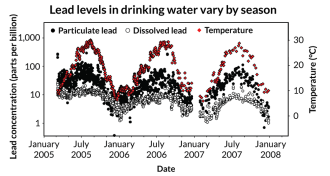 Environment
EnvironmentWhen measuring lead in water, check the temperature
Lead contamination in drinking water can be much higher during summer than winter, new research suggests.
-
 Environment
EnvironmentU.S. oil and gas boom behind rising ethane levels
Oil and gas operations on North Dakota’s Bakken shale are largely to blame for a recent rise in global emissions of the greenhouse gas ethane, researchers conclude.
-
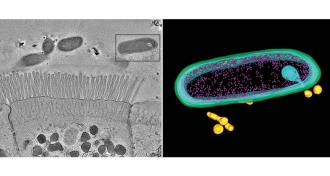 Life
LifeSome Crohn’s genes make cells deaf to messages from good gut bacteria
Genes linked to Crohn’s disease, an inflammatory bowel disease, might make people’s immune cells miss out on helpful messages sent by friendly gut bacteria.
By Meghan Rosen -
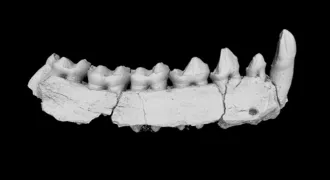 Anthropology
AnthropologyAsian primates hit hard by ancient climate change
Chinese fossils suggest primates diverged in Asia and Africa around 34 million years ago.
By Bruce Bower -
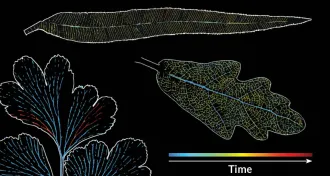 Plants
PlantsHere’s what a leaf looks like during a fatal attack of bubbles
Office equipment beats synchrotrons in showing how drought lets air bubbles kill the water-carrier network of veins in plant leaves.
By Susan Milius -
 Microbes
MicrobesLeptospirosis bacterium still haunts swimming holes
Bacterial scourges lurk in warm recreational waters.
-
 Particle Physics
Particle PhysicsReaders ponder gravity wave physics
Gravitational waves, the benefits of fat and more reader feedback.
-
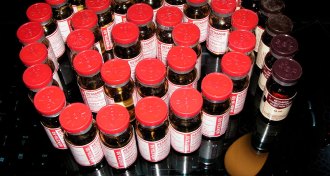 Neuroscience
NeuroscienceA breakdown product, not ketamine, may ease depression
Ketamine’s breakdown product, not the drug itself, eases depression, a mouse study suggests.